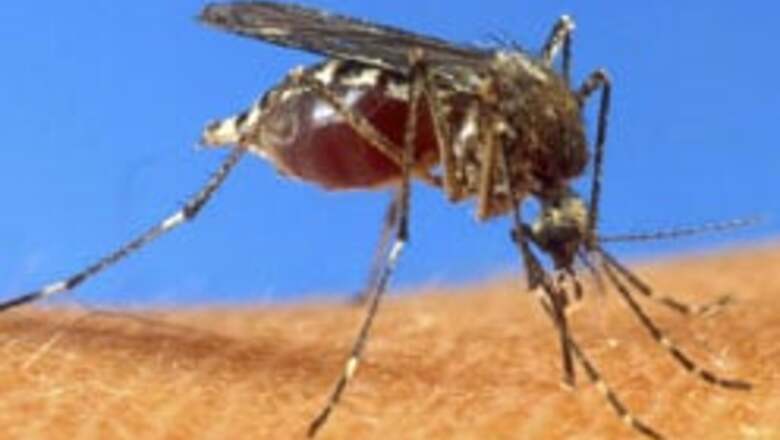
views
Washington: Researchers have developed a malaria-resistant mosquito, a step that might one day help block the spread of an illness that has claimed millions of lives around the world.
When they fed on malaria-infected mice, the resistant mosquitoes had a higher survival rate than nonresistant ones, meaning they could eventually replace the ones that can carry the disease, according to a report in Tuesday's issue of Proceedings of the National Academy of Sciences.
Jason Rasgon of the department of molecular microbiology and immunology at Johns Hopkins University cautioned that the research so far is only a proof of principle and any field tests remain far away.
Nonetheless, it's a goal eagerly sought by scientists in hope of developing a practical way of blocking the spread of malaria.
According to the federal Centers for Disease Control and Prevention, an estimated 700,000 to 2.7 million people die of malaria each year, 75 percent of them African children.
Working with the mouse form of malaria — not the human type — Rasgon's team was able to genetically engineer mosquitoes that were resistant to malaria.
Malaria infection does exact a toll on mosquitoes and in laboratory work they found that the resistant insects were able to outcompete nonresistant mosquitoes.
Starting with the same number of resistant and nonresistant mosquitoes, they found that after nine generations the resistant type made up 70 per cent of the population raising the possibility of replacing regular mosquitoes with resistant ones that don't spread disease.
However, Rasgon stressed that in the lab work the insects were infected with a higher amount of the parasite than occurs in nature, and a larger proportion of the mosquitoes were infected.
"This was proof of principle," Rasgon said in a telephone interview. "The next step would be to work in a system more epidemiologically relevant" but still in the lab.
"We're not anywhere near a field release," he said. Now they need to turn their attention to working with human malaria and trying to engineer a mosquito resistant to that.
A professor of entomology at Colorado State University, William C Black IV noted that the work was done with Plasmodium berghei, which infects mice, rather than P falciparum, which causes malaria in humans.
P berghei is often used in laboratory work because it is easy to manipulate, but a lot of its properties are specific to that parasite and it is not always a good model for the human form, he said.
"On the other hand, finding a gene that confers resistance and is stable for a long period of time is significant," said Black, who was not part of the research team.
If they can repeat the work using the human parasite then there is a chance of taking it into the field, he said.
Dr Woodbridge Foster, an entomologist at Ohio State University who was not part of the research team, said that while several labs have been trying to develop a resistant mosquito, he was not aware of any that had been developed that were both healthy and inhospitable to the malaria parasite.



















Comments
0 comment